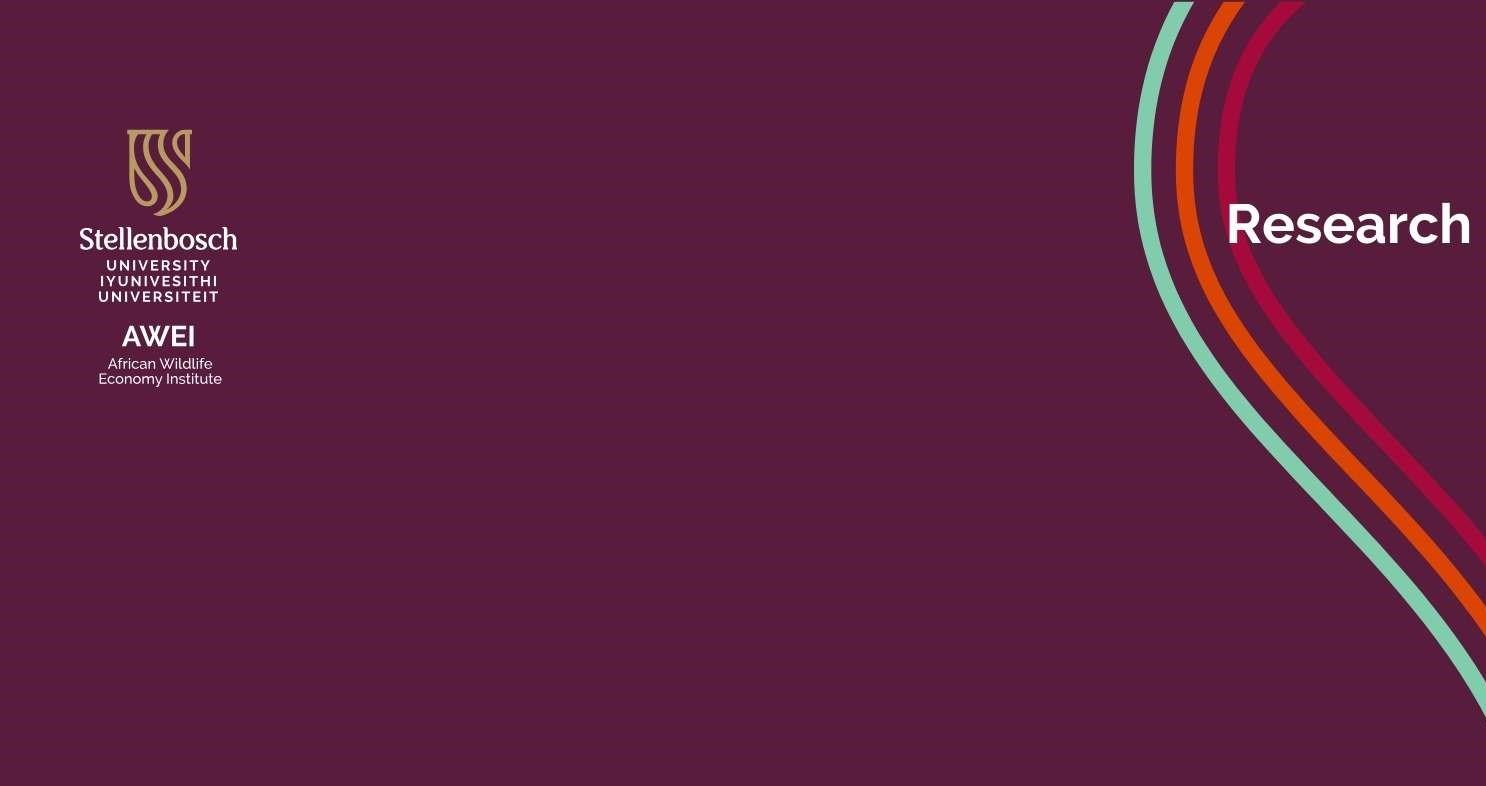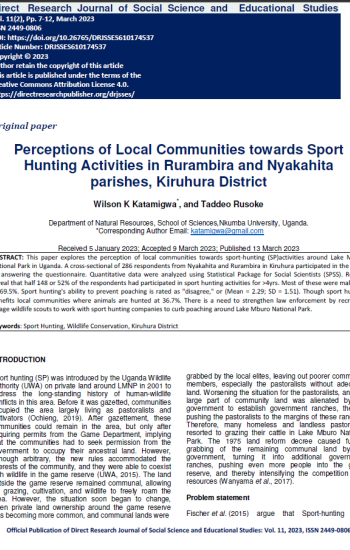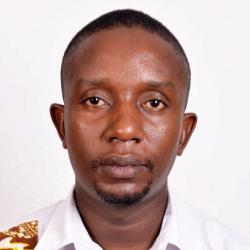

Perceptions of Local Communities towards Sport Hunting Activities in Rurambira and Nyakahita parishes, Kiruhura District Uganda
This paper explores the perception of local communities towards sport-hunting (SP)activities around Lake Mburo National Park in Uganda. A cross-sectional of 286 respondents from Nyakahita and Rurambira in Kiruhura participated in the study by answering the questionnaire. Quantitative data were analyzed using Statistical Package for Social Scientists (SPSS). Results reveal that half 148 or 52% of the respondents had participated in sport hunting activities for >4yrs. Most of these were male 199 or 69.5%. Sport hunting's ability to prevent poaching is rated as "disagree," or (Mean = 2.29; SD = 1.51). Though sport hunting benefits local communities where animals are hunted at 36.7%. There is a need to strengthen law enforcement by recruiting village wildlife scouts to work with sport hunting companies to curb poaching around Lake Mburo National Park.
Katamigwa, Wilson & Rusoke, Taddeo. (2023). Perceptions of Local Communities towards Sport Hunting Activities in Rurambira and Nyakahita Parishes, Kiruhura District Uganda. Direct Research Journal of Social Science and Educational Studies: Vol. 11, 2023, ISSN 2449-0806
-

Dr Taddeo Rusoke
Research Associate -
Wilson K Katamigwa
We support the free flow of information. Please share:
More content
-

What Foot and Mouth Disease-free means for South Africa’s game meat trade
Ms Lydia Daring Bhebe…Explore the latest developments in South African provinces achieving and maintaining Foot and Mouth Disease (FMD) free status…
Articles -

The world wildlife trade regulator is 50 – here’s what has worked and what needs to change
Daniel Challender…Most countries implement Cites, the Convention on International Trade in Endangered Species of Wild Fauna and Flora as…Articles -

Enabling Sustainable Wildlife Trade
Prof Francis VorhiesEnabling sustainable wildlife trade is a key policy measure for growing Africa's wildlife economy. In this respect, CITES…
Articles -

Has CITES become too complicated to be effective?
Prof Francis VorhiesGovernments agreed to the text of CITES in the 1970s, which is quite straightforward. However, the agreement’s implementation…
Articles -

From poachers to providers: Can Africa's wild meat market save wildlife?
Dr Wiseman NdlovuHave you ever considered how wild meat could be more than just a cultural staple but also a…
Articles -

As a fellow of the African Wildlife Economy Institute (AWEI), I am excited to attend the upcoming 3rd…
Articles -

A theory of change to improve conservation outcomes through CITES
Dr Michael 't Sas-Rolfes…Here we articulate the implied theory of change (ToC) underpinning the design and operation of CITES (Convention on...
2025Research -

Wild Meat Value Chain Integration Systems: Opportunities for Value Chain Formalisation and Scaling in Africa
Dr Wiseman Ndlovu…Establishing a legal, safe and sustainable wild meat sector promises to potentially reduce demand for illegally sourced meat...
2025Research -

AWEI's 2024 Wildlife Economy Dialogue Series
Ms Emily TaylorRediscover 2024: A year of insight and inspiration
In 2024, AWEI proudly hosted three ground-breaking dialogue series in…
Articles
Get updates by email
Through impactful research, stakeholder engagement, and professional development, AWEI is supporting the wildlife economy across Africa. Please subscribe for occasional updates on our work and forthcoming events.
Sign up for a quarterly dose of AWEI insights
In a complex and changing world, AWEI generates strategic ideas, conducts independent analysis on wildlife economies, and collaborates with global scholar-practitioners to provide training and expertise for biodiversity conservation, climate resilience, and inclusive economic opportunities in Africa.
